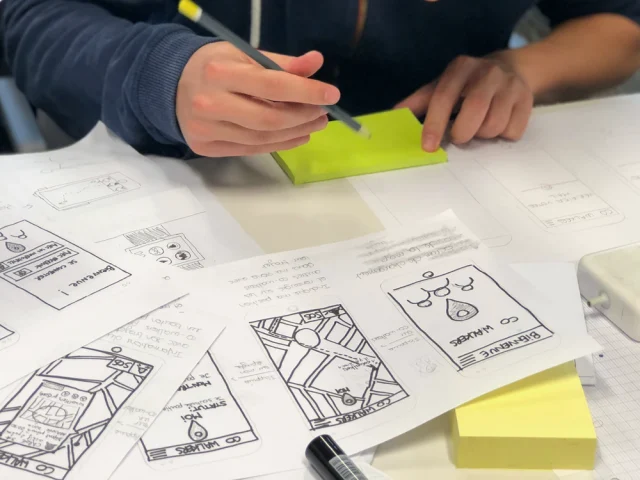
Turning your ideas into something profitable may be the hardest part of being an inventor.
No matter how excellent and game-changing your ideas may be, if you do not possess the skill nor the drive to bring them into life, all of your efforts will amount to nothing!
If you feel like you’ve tried everything to make some money out of your brilliant ideas, but haven’t had any success just yet, you’ve come to the right place! Here we’ll tell you everything you need to know about being an inventor (and a businessman!) in 2025, so keep on reading to learn more!
1. Be prepared for some failures

If you have a fear of the unknown and you’re unable to take any risks, well, perhaps inventing isn’t quite for you. You need to be prepared to withstand every drawback, failure, and obstacle coming your way! Being an inventor is not easy: some would even dare say it’s never been tougher. There seems to be a product for everything nowadays, which can be a bit discouraging to new inventors worldwide.
Still, if you’re prepared to work for your ideas and you truly believe they have the potential to become successful products one day, there shouldn’t be anything stopping you from bringing your vision into life. Stay focused and motivated. Don’t give up after you’ve run into your first obstacle, but work even harder to overcome it!
If you’re prepared to fail and raise up again and do it a million times if necessary, you’ve got what it takes to become a successful inventor one day.
2. Ensure your idea has a potential market

You can’t sell something that nobody would want to buy. You’ll need to do some serious market research before patenting your idea. You can even hire a specialist to help you with this task. Remember that you now have access to a global market, so take that into the consideration as well. Just because your items seem unsellable in the U.S, doesn’t mean there isn’t a market for it somewhere else!
If you’re not sure how to conduct proper market research, arm yourself with the relevant literature and start studying as hard as you can. Knowing the market you’ll place your products on is of the utmost importance for the future of your idea. If your product cannot provide any market value, it’s simply doomed to fail.
3. Check whether your idea is already patented

Don’t rush into investing in your idea until you’ve checked whether it’s already patented or not. Just because you never heard of it before, it doesn’t mean somebody else hasn’t thought of it before you. Double-checking all of this can potentially save you tons of money and time later on, so it’s certainly worth the effort.
If your idea ends up being already patented, and someone claims your product, they’ll essentially own your entire business. So, again, be careful and check all relevant databases for further information.
We also recommend hiring experts like those at InventHelp if you lack the resources to do your own extensive research.
For more information visit https://inventhelp.com/reviews
4. Creating a functional prototype is of the utmost importance

You won’t be able to pitch your idea without having a working prototype at your disposal.
Start by sketching your ideas and creating a plan. You don’t need to spend a fortune on making a functional prototype, it should only serve as proof that your idea can work in real life.
Consider hiring relevant industry experts to help you create a working, real-life model of your idea before you start looking for investors, especially if you lack the technical knowledge to do so yourself.
5. Seek support from your loved ones

You’ll never be alone on your path to making your first successful invention. While believing in yourself is what matters the most, taking constructive criticism from your loved ones can get you far in all of your inventive projects. Someone will always believe in you, so don’t be afraid to share your ideas! You may even get some financial support from your friends and family, which can mean everything to a newbie inventor.
6. Look for investors

If your friends or family aren’t in the position to help you to start off your invention idea, don’t worry! There’s plenty of places in your local area you can find investors in! Keep an eye on such events and concourses, and don’t be afraid to approach your local investors on your own. Even if your ideas get rejected at first, that’s no reason to get discouraged!
Learn how to present your idea appropriately, and practice your presentation as much as you need. Be prepared to answer any questions about your future product by doing as much research as you can.
7. Make a business plan

Once you’ve found a good source of financial support, it’s time to start crafting your business plan. Learning how to become a real businessman is not easy, but it’s necessary if you want to succeed. We suggest you take your time and hire all the necessary help you need.
One of the most important aspects of creating a successful business plan nowadays is marketing. No matter how good and relevant your products are if they’re not reaching their target audience, it will all amount to nothing.
Again, we suggest working with professionals in the industry to ensure your products get a launch they need to become relevant on the market.
The bottom line
Turning your invention into a profitable product can be a daunting task. There are many obstacles you’ll have to overcome in order to get where you want to be. With that being said, patenting a successful invention is not impossible! With enough research and some hard work on your part, you’ll get there in no time whatsoever!
We hope our article helped you start your own inventive journey, and we wish you good luck in all of your future endeavors.












